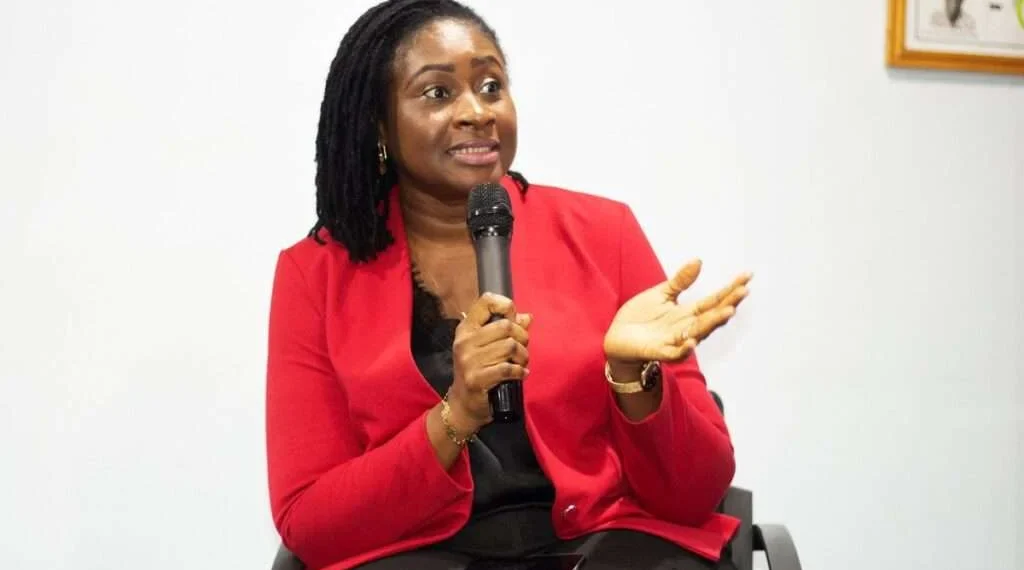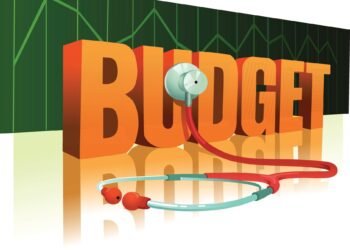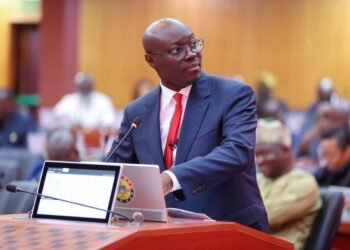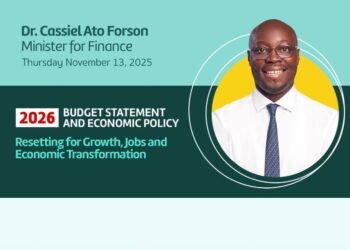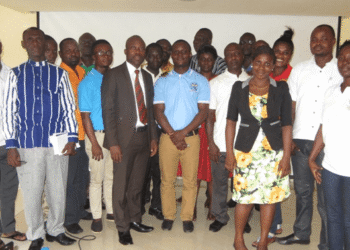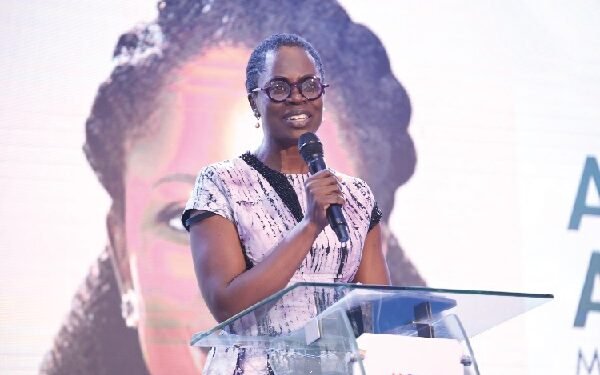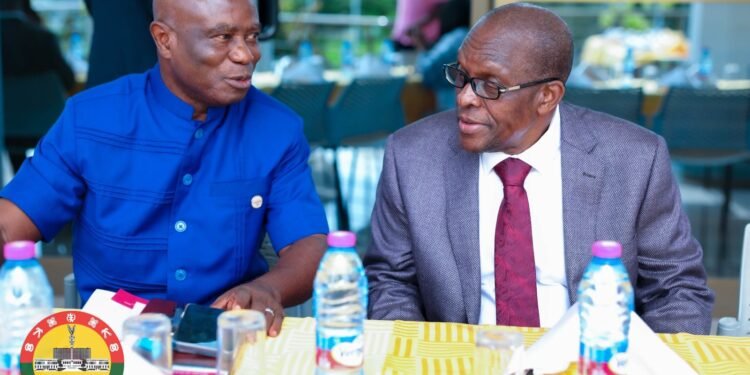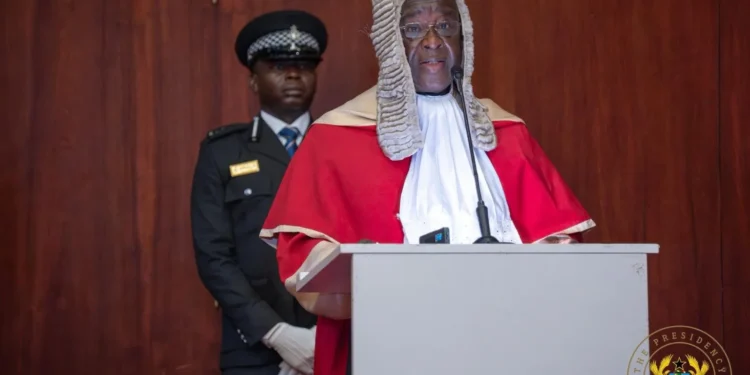Dr. Priscilla Twumasi Baffour has weighed in on the ongoing discussions about the 2026 Budget, revealing that the Budget’s contents are familiar and called for the government to sustain economic stability.
The economist and senior lecturer at the Department of Economics, University of Ghana, noticed that periods ending IMF programs are heavy on fiscal discipline, but then there is a slippage after the program ends, which derails all government plans and projects.
“I must say that it is not surprising what we heard in the budget. This is the last budget in the three years of the IMF program. And so essentially the budget is very heavy on fiscal discipline for Ghana to maintain the path that we are on.”
Dr. Priscilla Twumasi Baffour
She expressed excitement about the current stability of the economy and cautioned that the stability the economy is enjoying is critical. According to her, the entire content of the Budget rides on the economic stability being experienced now.
While investments are made to address the country’s structural challenges to ensure the growth of the economy, employment generation is increasingly becoming a problem. “What is interesting to me is the way the government is using the stability we have obtained to try to adapt to the future in terms of infrastructural projects, in terms of budgeting for employment,” she added.

She again mentioned that “it is not surprising that the budget lays a lot of emphasis on fiscal discipline. And for us as analysts, we are watching the space, particularly as the country exits the IMF program, mid next year, because we know that historically when Ghana is under a fund program, we do well.”
The senior lecturer admitted that the economy has “performed excellently because when you look at the statistics, you will see that everything is on track – GDP growth is on track and has achieved a single-digit inflation – which is the year-end target but is being achieved currently.”
The Labor economist added that “I’m excited to see that increasingly we are focusing on jobs when we talk about budgets in this country, which is critical.”
She also expressed her excitement for the representation of the needs of Ghanaians in the Budget.
“And so, I see that this budget is also quite sensitive to the needs of the Ghanaian people in terms of social protection, investment in education, and health. All these are on the back of the stability that we observe.”
Dr. Priscilla Twumasi Baffour
She also affirmed that the current stability of the economy is borne by the gold and cocoa sectors. Recent high prices have benefited the country. However, since mineral pricing is externally determined, a turbulent situation on the global front can destabilize the economy.

Going forward, she advised that these commodity sectors must see a surge in local investment, where opportunities for value addition and employment generation are promoted to build resilience in the situation where gold and cocoa underperform. The Ghanaian economy needs a fallback plan, she added.
She commended the government for its choice to invest in commercial agriculture – palm plantation – to bring growth in the employment figures currently being witnessed. She expects that many jobs will be created in the industry.
Dr. Baffour, though excited for the construction of the Accra to Kumasi Expressway, which the government claims will provide 300,000 plus jobs, disclosed that these jobs are temporary and the government needs to focus on sustainable jobs.
“I think it is important. But when we talk about employment generation, we should also focus on the generation of sustainable and decent jobs. Because when you look at the 300,000 jobs in the construction industry that are being proposed, you see that these are temporary jobs.”
Dr. Priscilla Twumasi Baffour
She quickly added that it is important to start from a point, therefore, she welcomes the temporary jobs while sustainable ones are being planned for. She again lamented on the promise-and-fail system of the political class, where budgeted projects never see the light of day. “My only reservation is that a lot of these big projects are usually consistently promised in budgets, but they are not delivered,” she said.

She questioned the funding of these projects, even though the Minister of Finance assured that every project embarked on will have a funding source till completion.
For instance, the Big Push project has been allocated 30 billion Cedis to be sourced from the Annual Budget Funding Amount (ABFA) generated from portions of Ghana’s oil revenue. Other mineral resources have also been proposed for other projects, while Public-Private Partnerships (PPP) will capture the rest.
According to the labor expert, the PPP will thrive on the confidence of Ghanaians and investors in the stability of the country.
“And that is why I insist that the stability we are observing, we need to guard it as much as possible, because anything that derails, that means that all these plans will be thrown out of gear.
“And so essentially, if the private sector is going to partner with government, they need some level of certainty, some level of protection, and also some level of projection of the revenues that will be gained.”
Dr. Priscilla Twumasi Baffour
The PPP involvement in these initiatives of the government is a long-term investment and “that would require some level of continuity in our governance space to reap benefits.”

Therefore, they must “think long-term, and that the periodic changes in government and shifts in policy stance do not really augur well for investment, particularly if the government is going on the tangent of PPP.” They need that assurance, and they need that level of continuity to be able to do that.
READ ALSO: IMANI Boss Hails Ato Forson for Fastest Debt Reduction in Ghana’s Recent History

